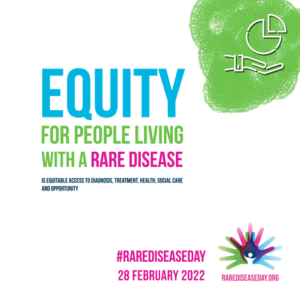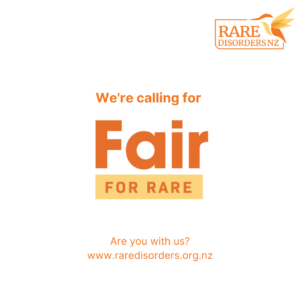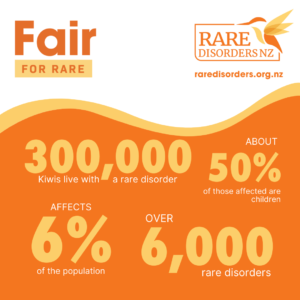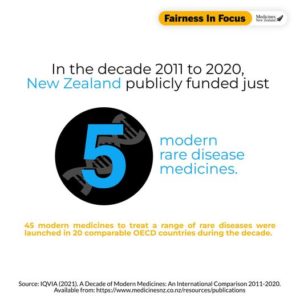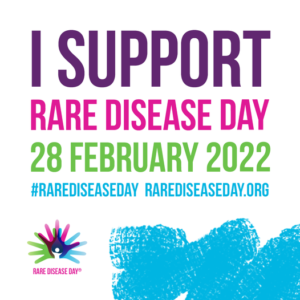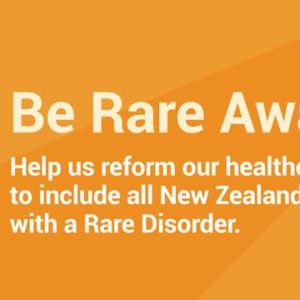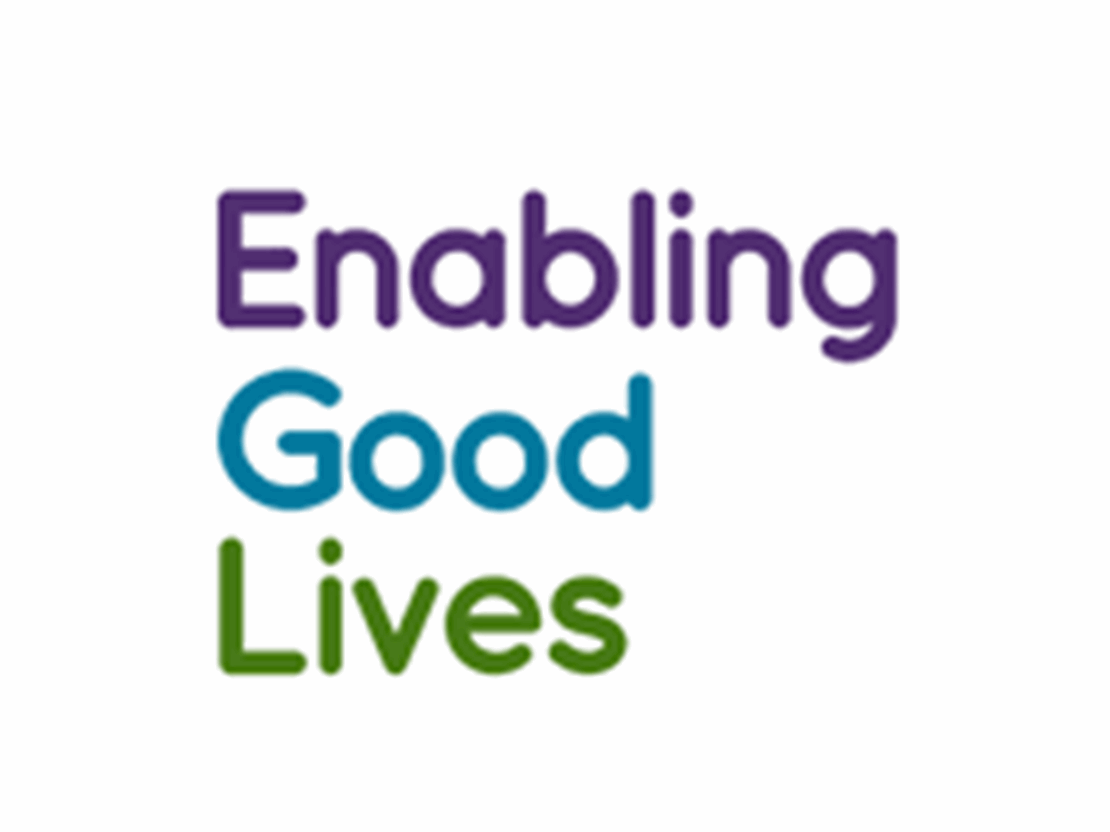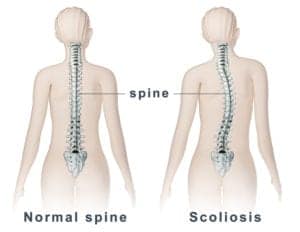PWSA(NZ) stands with Rare Disorders NZ in demanding Fair for Rare
On International Rare Disease Day, PWSA(NZ) stands with Rare Disorders NZ calling for action from Government to commit to a National Health Strategy for Rare Disorders.
Today, Rare Disorders NZ released their Voice of Rare Disorders survey 2021, the largest-ever survey on New Zealanders living with rare disorders. Results reveal an alarmingly ill-equipped health system, underlining the need for urgent action for the 300,000 Kiwis living with a rare disorder. Click here to read Voice of Rare Disorders White Paper 2022 >
Rare Disorders NZ Chief Executive, Lisa Foster, says the findings are unacceptable when we look overseas. Unlike other countries in the OECD, New Zealand has no strategy or national action plan for rare disorders.
The government is currently undertaking a once-in-a-generation health reform. We ask for people living with rare disorders to be officially recognised as a population group, and for a specific strategy for rare disorders, like PWS, to be included in the Pae Ora (Healthy Futures) Bill. This will ensure people with PWS and other rare disorders in Aotearoa receive improved access to diagnosis, medicines and services. With a health reform underway, the obstacles and gaps in our inequitable system could be addressed and lead to benefits that would reduce the pressure on an already overloaded health system.
This is our opportunity to make sure the PWS community and other rare disorder communities are heard. We need a health system that is Fair for Rare. Now is the time for change. Rare voices matter and cannot be ignored with 6% of our population living with a rare disorder, impacting up to 1/3 of our society.
With the Rare Disease Day focus this year being ‘A GLOBAL PRIORITY FOR EQUITY’, we ask that the Pae Ora Legislation Committee realise the importance of inclusion for a significant, yet marginalised and vulnerable population group.
Hannah’s Story
Hannah’s Story is just one example of a need for a national framework for rare disorders. Both Tommy’s diagnosis and treatment with growth hormone medication were delayed and we occasionally hear of children who are not diagnosed until much later than Tommy. As the benefits of GHT increase with earlier treatment, these delays may have reduced potential benefits for Tommy.
Parents should not have to advocate so hard for their children to receive treatments they need. Speaking about growth hormone treatment, Hannah says, “We had to really push to get that started. It was kind of like there was a piece of that puzzle missing in terms of we didn’t have everybody in the same room saying, ok, this is what needs to happen for your child. I guess that is one frustrating part of the system – that you aren’t just mum and dad; you are also constantly advocating for your child.”
This exemplifies why a specific health strategy for rare disorders is needed. Specific, coordinated and integrated pathways for cohesive clinical care would have improved this situation by ensuring that upon diagnosis, Tommy’s medical team would have been informed by relevant experts on a course of care and treatment. Planned workforce development outlined in a rare disorders framework could also have ensured a more timely diagnosis, avoiding Tommy’s family experiencing the worry of bringing Tommy home from the hospital where he failed to thrive for his first three weeks.
Medicines for Rare Disorders
Today, we also ask that the Government remove clauses in the Pae Ora Bill which exclude Pharmac from the principles surrounding equity and engagement with population groups. We would expect to see a focus on equitable performance within Functions of Pharmac listed in the Bill, especially in light of the recently published interim report by the Pharmac Review panel. The Pharmac Review Interim Report highlighted various issues, including a lack of equity in decision making for rare disorder groups and that a heavy focus on cost savings disadvantages smaller groups needing higher cost medicines. Between 2011 and 2020, New Zealand publicly funded just 11% (5 out of 45) of the modern rare disease medicines that became available across 20 OECD countries. It is therefore essential that the Pae Ora Bill incorporates a response to issues raised in the interim report.
A Rare Disorders Health Strategy could outline a specific assessment pathway to ensure equitable access to modern rare disorder medicines. Changes to decision making policy and budgetary constraints at Pharmac would also have ensured that Tommy’s treatment could have started even earlier than 6 months if access to GH treatment was expanded on a par with other OECD
countries, as advocated for by the PWSA(NZ) for almost 2 decades. A generation of New Zealanders with PWS experienced extremely lengthy resistance to funding an essential treatment for PWS and as a result, many missed out and are now experiencing long-term negative health outcomes creating a wider impact on our health and disability systems.
JOIN US IN CALLING FOR FAIR FOR RARE! #FairforRareNZ #RareDiseaseDay

